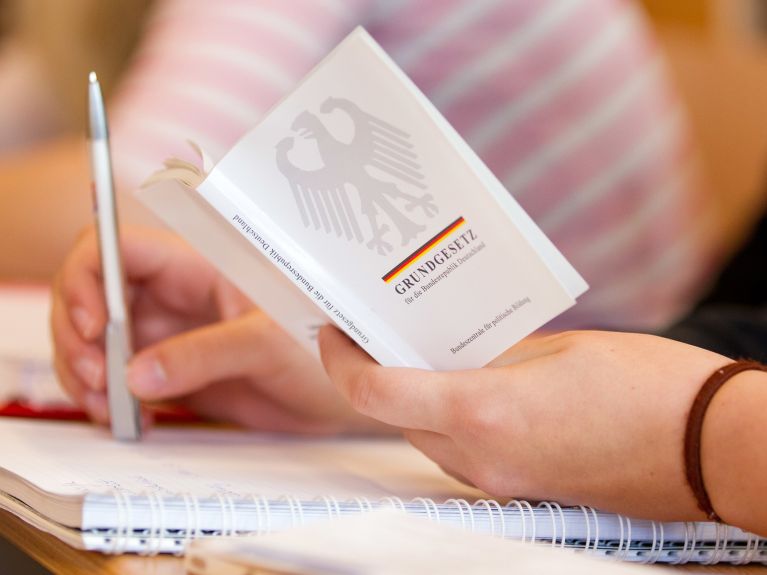Germany’s most important book
The German Basic Law came into effect in 1949. It was originally designed as a provisional constitution. Five questions and answers.

In which historical situation was the German Basic Law created?
After World War II disagreements developed between the three victorious powers Great Britain, France and the USA, and their wartime ally the Soviet Union about the future of occupied Germany. In order to push forward plans for a partial state in the west under the auspices of their military government, the three military governors authorized the West German minister presidents of the federal states to carry out concrete tasks. These authorizations became known as the Frankfurt Documents. The first, and most important document, required the setting up of a constituent assembly which should draft a federal and democratic constitution.
Why is it still called the Basic Law and not the constitution?
The West German minister presidents feared that a constitution written as the foundation document of a new state could deepen the division of Germany into East and West. The constitution was to be of a provisional nature and would only be valid during the division until unity had been restored. That is why it was called the Basic Law.
Human dignity shall be inviolable.
Who wrote the Basic Law?
The text was prepared by a committee of experts and civil servants. This so-called constitutional convention met for almost two weeks in August 1948 at Herrenchiemsee Castle in Bavaria. The parliaments of the federal states also played a central role: individual MPs were appointed to form a Parliamentary Council which would further develop the constitutional convention’s draft and pass the Basic Law.
What happened after that?
A strong chancellor, a strong federal representation, a strong Federal Constitutional Court, a weak federal president – the constitutional convention already specified the key elements of the Basic Law. The Parliamentary Council with the representatives of the federal states further sharpened the basic rights and demanded equal rights for women. A modern constitutional text was created. The guaranteed basic rights include, for instance, the right to freedom of religion, freedom of expression and equality before the law. On 8 May 1949 the Parliamentary Council adopted the text and confirmed the law on 23 May in Bonn.
Has the German Basic Law remained unchanged since then?
No, it has been changed 62 times, especially alongside increasing ties between the Federal Republic and the West, European integration and German reunification. Changes to the Basic Law have to be passed with a two-thirds majority by each of the two houses of parliament, the Bundestag and the Bundesrat.


